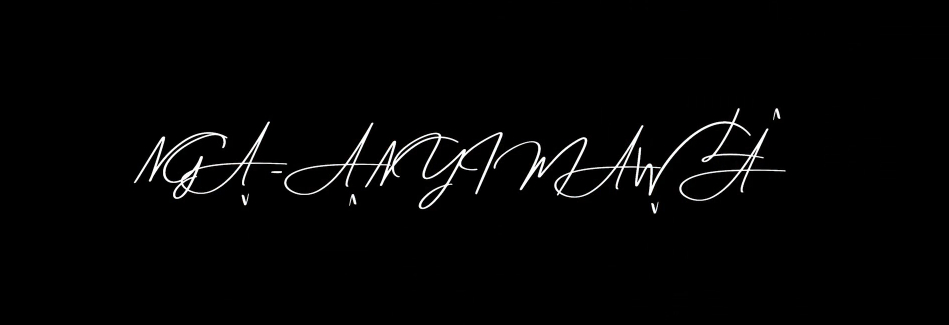
Chulayarnnon Siriphol’s Birth of Golden Snail (กำเนิดหอยทากทอง) will be shown this weekend as part of The Golden Snail Series (วัฒนธรรมหอยทากทอง), a programme of five short films by the artist that feature his golden snail motif. There will be two screenings, each followed by Q&A sessions with Chulayarnnon: at A.E.Y. Space in Songkla on 18th January, and at Lorem Ipsum in Hat Yai on the following day.
The other short films in the programme are Golden Spiral (โกลเด้น สไปรัล), The Internationale (แองเตอร์นาซิอองนาล), ANG48 (เอเอ็นจี48), and How to Explain “Monument to the Fourth International” to the Dead Golden Snail (เรารักภูมิพลังวัฒนธรรมละมุนละม่อมนุ่มนิ่ม). Golden Spiral was first shown at Ghost:2561. ANG48 was first shown at Shadow Dancing, and later at Wildtype 2023, ใช้แล้ว ใช้อยู่ ใช้ต่อ (‘I’ve used it, I’m using it, I’ll keep using it’), The 27th Thai Short Film and Video Festival (เทศกาลภาพยนตร์สั้น ครั้งที่ 27), and the Short Film Marathon 27 (หนังสั้นมาราธอน 27).
The other short films in the programme are Golden Spiral (โกลเด้น สไปรัล), The Internationale (แองเตอร์นาซิอองนาล), ANG48 (เอเอ็นจี48), and How to Explain “Monument to the Fourth International” to the Dead Golden Snail (เรารักภูมิพลังวัฒนธรรมละมุนละม่อมนุ่มนิ่ม). Golden Spiral was first shown at Ghost:2561. ANG48 was first shown at Shadow Dancing, and later at Wildtype 2023, ใช้แล้ว ใช้อยู่ ใช้ต่อ (‘I’ve used it, I’m using it, I’ll keep using it’), The 27th Thai Short Film and Video Festival (เทศกาลภาพยนตร์สั้น ครั้งที่ 27), and the Short Film Marathon 27 (หนังสั้นมาราธอน 27).

Birth of Golden Snail was banned from the Thailand Biennale in 2018, and had its first public screening at the following year’s 30th Singapore International Film Festival. Its Thai premiere was at the 23rd Thai Short Film and Video Festival (เทศกาลภาพยนตร์สั้น ครั้งที่ 23), and it was shown last year at Infringes. Chulayarnnon discussed the film in an interview for Thai Cinema Uncensored.
How to Explain “Monument to the Fourth International” to the Dead Golden Snail was also the title of Chulayarnnon’s installation at the Silpa Bhirasri Creativity Grants 23 (นิทรรศการทุนสร้างสรรค์ศิลปกรรม ศิลป์ พีระศรี ครั้งที่ 23) group exhibition, on show from 15th September to 23rd November last year at Silpakorn University Art Centre in Bangkok. The installation included a framed letter from the Office of Contemporary Art and Culture asking the director to cut ‘objectionable’ footage from Birth of Golden Snail.
How to Explain “Monument to the Fourth International” to the Dead Golden Snail was also the title of Chulayarnnon’s installation at the Silpa Bhirasri Creativity Grants 23 (นิทรรศการทุนสร้างสรรค์ศิลปกรรม ศิลป์ พีระศรี ครั้งที่ 23) group exhibition, on show from 15th September to 23rd November last year at Silpakorn University Art Centre in Bangkok. The installation included a framed letter from the Office of Contemporary Art and Culture asking the director to cut ‘objectionable’ footage from Birth of Golden Snail.



















































